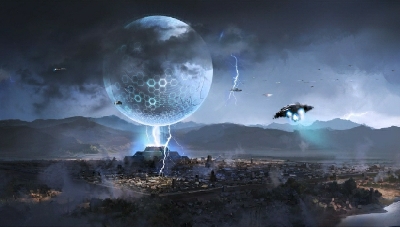Science fiction is a genre that has the power to transport readers into new and exciting worlds. From outer space to future societies, to dystopian futures in which humanity faces extinction, science fiction novels can be fascinating reads for those who enjoy exploring different possibilities of what could happen if technology progresses or society collapses. Yet not every sci-fi novel is successful at captivating its readers from the first page and keeping their attention until the last. If you are writing this type of book yourself, here are 10 tips on how you can make it more interesting for your audience
1) Add action
In a world where everything seems perfect, people may grow bored with nothing but peace and prosperity happening around them all day long. But give your protagonist something they have to deal with, whether it's a natural disaster, disease outbreak or invasion of aliens. Think of all the action-packed movies you have seen - even if they are not science fiction themselves, they usually have fantastical elements so that their plots can be more engaging and dramatic.
2) Add adventure
Another way to make your sci-fi story more interesting is to add adventure by sending your protagonist on a quest for something important. Whether it's gaining knowledge about how technology functions in their world, stopping an invading army from taking over the city, or rescuing their family members from danger, having a reason for them to move towards the next scene will help keep your readers intrigued and leave them wanting more.
3) Add mystery
If the protagonist has to uncover the secrets of a lost civilization or a mysterious illness, your readers will want to learn what they discover as they go along. New clues and revelations about what exactly is going on should be introduced at just the right time – not too early that you have given away too much information, but not so late that the reader gets bored with waiting. Withholding more important facts until later may also provide more suspense for them as an extra incentive to keep reading.
4) Add suspense
Another component of many successful books is creating anticipation in your audience's minds by making them wonder how events are going to unfold before they actually happen. Do this by hinting at possible dangers lurking ahead for your characters, either through foreshadowing or by having other characters warn your protagonist of what they are about to face.
5) Create new characters
Mix up the types of people you introduce to your story, whether it's an enemy soldier who does things differently from their fellow soldiers or a little girl whose only goal is to make friends on her space station. Having different personalities can help enhance feedback on how different events affect each character since they have unique views on how certain situations should be handled.
6) Explore new worlds
The more unique the places in which you set your book, the more your readers will want to learn about them. If there are few differences between where your protagonist comes from and where they currently are, then the reader may not be interested enough to read on to find out more about this unknown world.
7) Create new technology
In a sci-fi novel, it can be a challenge to come up with creative ways in which technology works that have not been used before. If your protagonist has amazing gadgets at their disposal, think of plausible explanations for how they work and why nobody else has them. Make sure you don't go overboard with describing the functions of each character's items if you want the reader to focus on experiencing events through their eyes instead of following instructions from a manual. Describing places with new technology, such as a floating city, a sophisticated spaceship, or a futuristic casino filled with bizarre creatures and strange slots, can also keep your readers intrigued and give you a chance to explore the possibilities of living in such an environment.
8) Use descriptive language
Regardless of whether you are writing a traditional science fiction novel or one that is more magical in nature, it is important to let your readers know what your protagonist is doing and what they are seeing. If there are various settings, you should pay attention to describing them in a way that paints a vivid image in the minds of all who read your book.
9) Read sci-fi stories
To learn more about what makes a successful sci-fi story, it is helpful to read others' works and see which techniques have been most effective with audiences before. Try writing down why certain scenes or chapters do not seem quite as interesting as others so that when you sit down to write your next piece, you have an idea of what to avoid so that your readers won't be tempted to put it down for good after the first few paragraphs.
Conclusion
Creating a captivating sci-fi story can be difficult, but with these 9 tips, you should have no problem spicing up your narrative. The most important thing to keep in mind is that it's not just about the characters or how different their worlds are - it comes down to how those things affect the protagonist and make them react differently than they would otherwise.

Project Hail Mary (2026) sneak peek debuts new footage from the movie!
Ryan Gosling gives us a sneak peek of Project Hail Mary during the Winter Olympics, showcasing new footage!

Final trailer for Project Hail Mary – the Ryan Gosling sci-fi movie has landed!
Ryan Gosling must work with an intelligent alien creature to devise a way to save Earth from destruction!

What’s Next For The Alien Franchise?
Explore what’s next for one of the world’s most successful franchises in Alien – movies, tv shows, games and more.

FROM Season 4 arrives April 19th, 2026!
The mind-bending sci-fi thriller returns for a fourth season this April on Prime Video!

Pluribus Creator Intended to Riff Off Genre Headliners, But Perhaps Didn’t Expect This Connection
From the creator of Breaking Bad and Better Call Saul, expectations were notably high for the Apple TV+ release of Pluribus. The platform’s risi...



